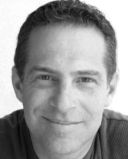Career
Is the Universe Friendly? You Decide!
How one simple choice can change your life.
Posted January 1, 2016 Reviewed by Ekua Hagan

What would you say if I told you I have a single, ridiculously simple New Year’s resolution you can make that will all but guarantee you the best year you’ve ever had?
Probably something like, Yeah, right, dude.
And what if I added that this resolution involves no gyms, no diets, no financial investments—heck, no traditional sacrifices at all?
Now you’re likely rolling your eyes. Sounds too good to be true, right?
It’s not, I promise you … if you resolve to make one choice, again and again and again in 2016.
That choice: Choose to see the universe as friendly.
Say what? I hear you protesting. Have you followed the news recently?
Actually, as a guy who makes his living delivering the news, I assure you I am all too familiar with our current mix of depressing and distressing news: the terrorist attacks, migration crises, mass shootings, political mudslinging, tragic deaths of all kinds, etc., etc. I report on this stuff every day. I see the bad all around us. And yet, I still choose to see the universe as friendly. And if you're willing to, as well, your life will never be the same.
Before I go any further with all this, allow me to clarify what I mean by a “friendly” universe. For me, this notion boils down to a fundamentally supportive life system that provides for me and all other living beings to the full extent that we are willing to draw on it in ways that serve a universal Greater Good. (Note: This does not mean that we can always get what we desire, as the universe “sees” a much bigger picture than we, ourselves, can truly comprehend.)
So, how do I know the universe is friendly? I don’t. I only know that choosing to see it that way has turned my life around and that the choosing process, itself, is one we can all master with practice. In fact, my advocacy partner, Shala Nicely, has created a terrific set of daily practices for doing so, and I've asked her to share them here in hopes of facilitating your new resolution.
Practice #1 (The Brain Rewiring Practice)
While the human brain is quite sophisticated, there are aspects of it that are rather out-of-date, you might say. Several million years out of date, in fact.
Throughout history, we humans have had to learn how to survive in the wild. Unlike other beasts, we don’t have thick fur coats or long, lethal fangs or deadly sharp claws. We’ve never had a physical advantage over predators. What we do have are brains that can quickly identify and solve problems. Unfortunately, though, as I learned from author Rick Hanson, our brains are also wired to look for the negative—to find any little aberration that could cause a problem. That’s how our species has stayed alive amongst all the other animals that have better natural defenses.
Because we are predisposed to look for what’s wrong, we’re going to miss a lot of what’s right with the world—the everyday miracles all around us, the acts of kindness, the serendipity, etc.—and we’re going to struggle to see the universe as friendly. Unless, of course, we work to re-wire our brains with this simple daily practice:
Expand your field of awareness, and try to notice the positive in life as much as, or more than, the negative.
Practice #2 (The Chinese Farmer Practice)
Sometimes we don’t even know what’s “good” and what’s “bad.” This reality is driven home so powerfully in what’s become known as the Chinese Farmer Parable. It goes something like this:
A Chinese farmer and his son live in a small village, and one day they wake up to find their only horse has disappeared. The farmer looks at his crestfallen son, who now has no horse to plow the field, shrugs his shoulders, and says “This may be bad. This may be good. Who knows?”
The next day, the farmer and his son wake up to find their paddock filled with an entire herd of horses that have come home with the missing horse, who now stands proudly in the middle of the enclosure. The farmer looks at his jubilant son, jumping up and down because he now has 20 horses to plow the field, and he says with the same shrug (which is slightly annoying to the son), “This may be good. This may be bad. Who knows?”
The next day, the son decides to tame one of the new horses, and falls off and breaks his leg. The father, helping his injured and wincing son into bed, says the same old line, which the son is beginning, little by little, to believe: “This may be bad. This may be good. Who knows?”
The next day, the son and the farmer watch out the window as the Chinese army comes by, conscripting all the able-bodied young men into the army. This time, the son pre-empts the father, and says with a twinkle in his eye, “This may be good. This may be bad. Who knows?”
As the parable suggests, we don’t always have the perspective at the time of an event to know whether it’s “good” or it’s “bad.” So, here’s my second daily practice for choosing to see the universe as friendly:
Acknowledge your feelings about a situation, but avoid judging it as either inherently good or bad.
Having trouble with this exercise? Make a list of the things you are grateful for—at least 10 to 20 items. You might be surprised to see how many previously “bad” things end up on this list.
Practice #3 (The Einstein Practice)
Albert Einstein is said to have remarked that the single most important decision any of us will ever make is whether or not to believe that the universe is friendly. What’s remarkable about these words is that they come from one of the most brilliant scientists who ever lived. My father is a scientist, and he has shared that science can never truly prove a theory—only disprove one.
Disproving that the universe is friendly would seem to be super easy—just tune in to Jeff’s news broadcasts most days!—so how can someone as smart and scientifically-minded as Einstein says we have a choice in how to see the universe? Because I believe Einstein knew that for every example of the world being unfriendly, you can find an equally compelling example of its being friendly. It is impossible to prove or disprove this particular theory.
In the absence of proof, all we are left with is belief. And belief is a choice.
Now, I am not suggesting that we put on rose-colored glasses and say everything is right with the world. That’s hardly the case; there are horrors and tragedies all around us, for sure. But this harsh reality does not mean that the universe is vindictive, punitive, or out to get us. That view too would be a choice. Right?
The concepts that “bad things do sometimes happen” and “the universe is friendly” are dialectical, yes, but they can be held gently together. One is a truism, and the other is a choice that colors how we see and experience the world.
Here then is my third, and most important, daily practice for choosing to see the universe as friendly:
Repeat these words from Einstein and live accordingly: “There are only two ways to live your life. One is as though nothing is a miracle. The other is as though everything is.”
With big thanks to Shala for sharing her daily practices, I want to encourage you to make 2016 the year you resolve to choose to see the universe as friendly.
You'll find much more on this concept here. I hope you’ll stop by and say hi.




